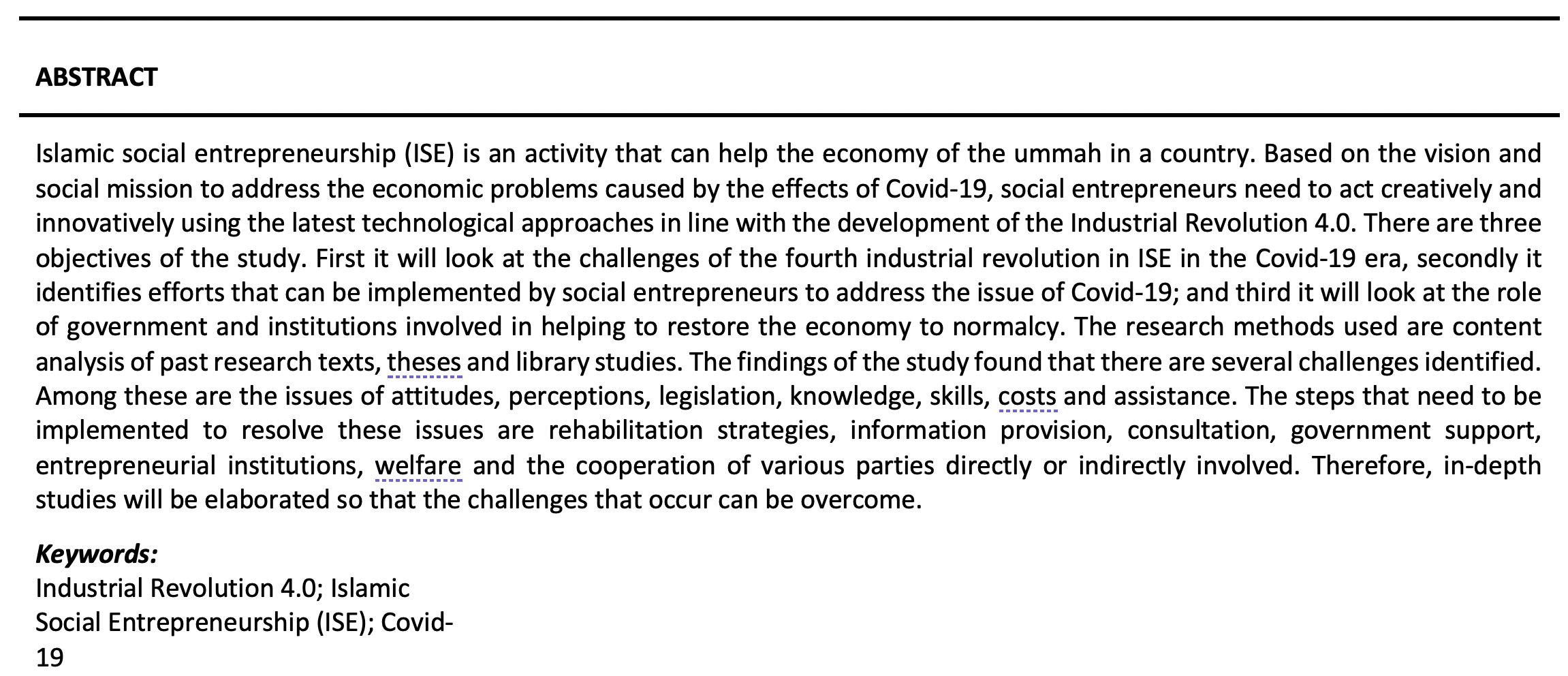The Challenges of the Industrial Revolution 4.0 in Islamic Social Entrepreneurship in the Covid-19 Era
DOI:
https://doi.org/10.37934/araset.28.2.235246Keywords:
Industrial Revolution 4.0, Islamic Social Entrepreneurship (ISE), Covid-19Abstract
Islamic social entrepreneurship (ISE) is an activity that can help the economy of the ummah in a country. Based on the vision and social mission to address the economic problems caused by the effects of Covid-19, social entrepreneurs need to act creatively and innovatively using the latest technological approaches in line with the development of the Industrial Revolution 4.0. There are three objectives of the study. First it will look at the challenges of the fourth industrial revolution in ISE in the Covid-19 era, secondly it identifies efforts that can be implemented by social entrepreneurs to address the issue of Covid-19; and third it will look at the role of government and institutions involved in helping to restore the economy to normalcy. The research methods used are content analysis of past research texts, theses and library studies. The findings of the study found that there are several challenges identified. Among these are the issues of attitudes, perceptions, legislation, knowledge, skills, costs and assistance. The steps that need to be implemented to resolve these issues are rehabilitation strategies, information provision, consultation, government support, entrepreneurial institutions, welfare and the cooperation of various parties directly or indirectly involved. Therefore, in-depth studies will be elaborated so that the challenges that occur can be overcome.
Downloads
Download data is not yet available.

Downloads
Published
2022-10-27
Issue
Section
Articles



























